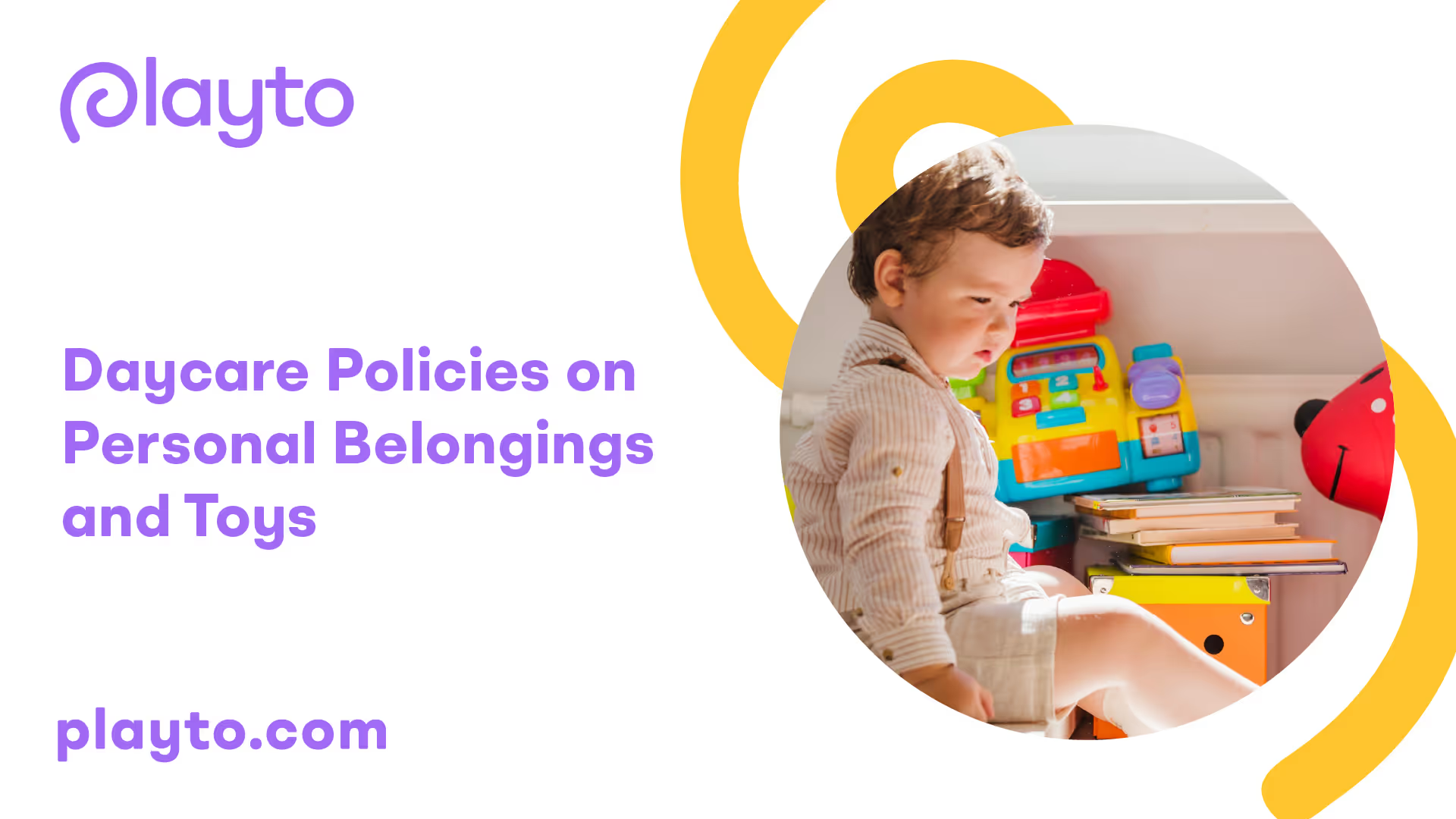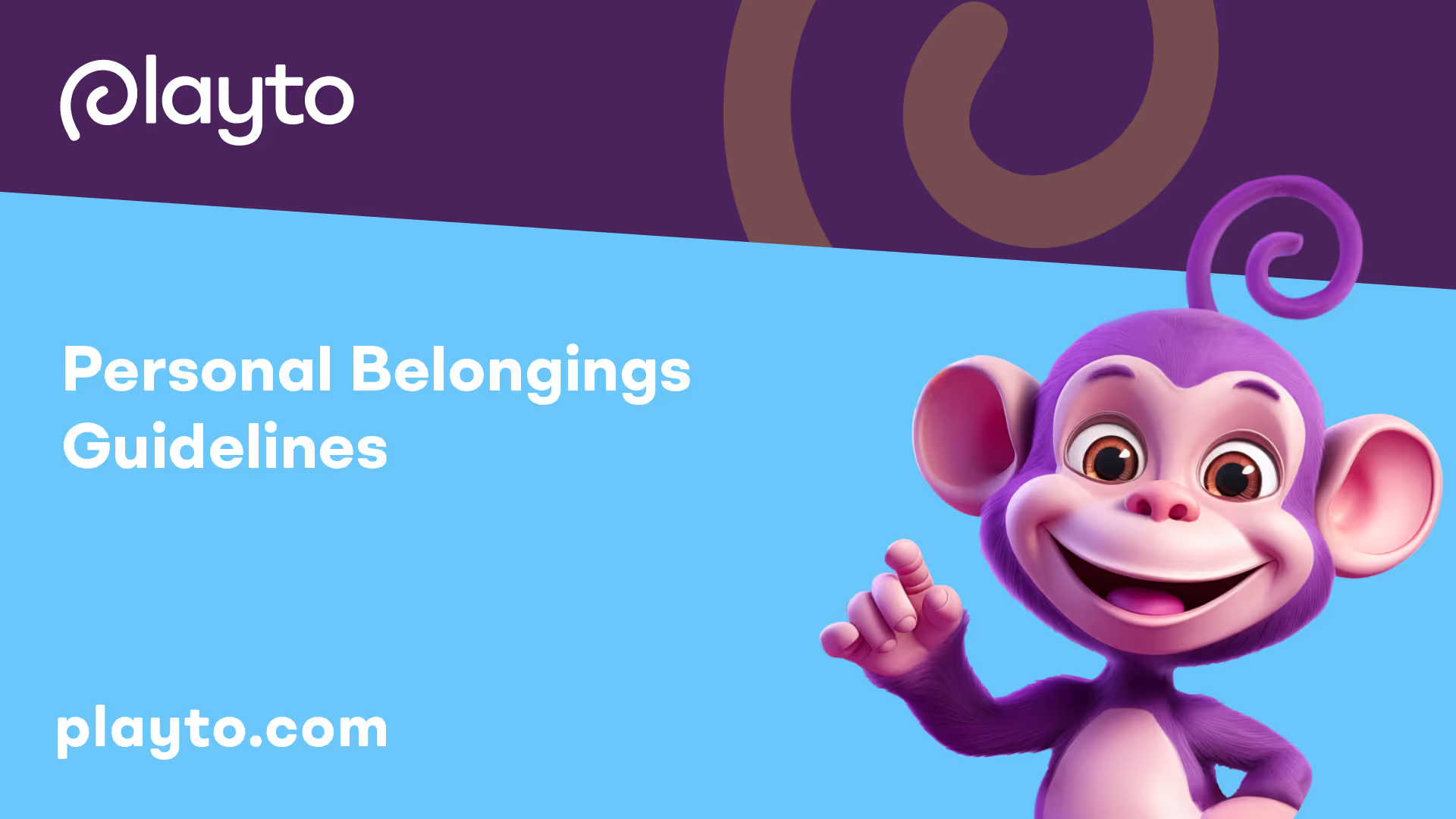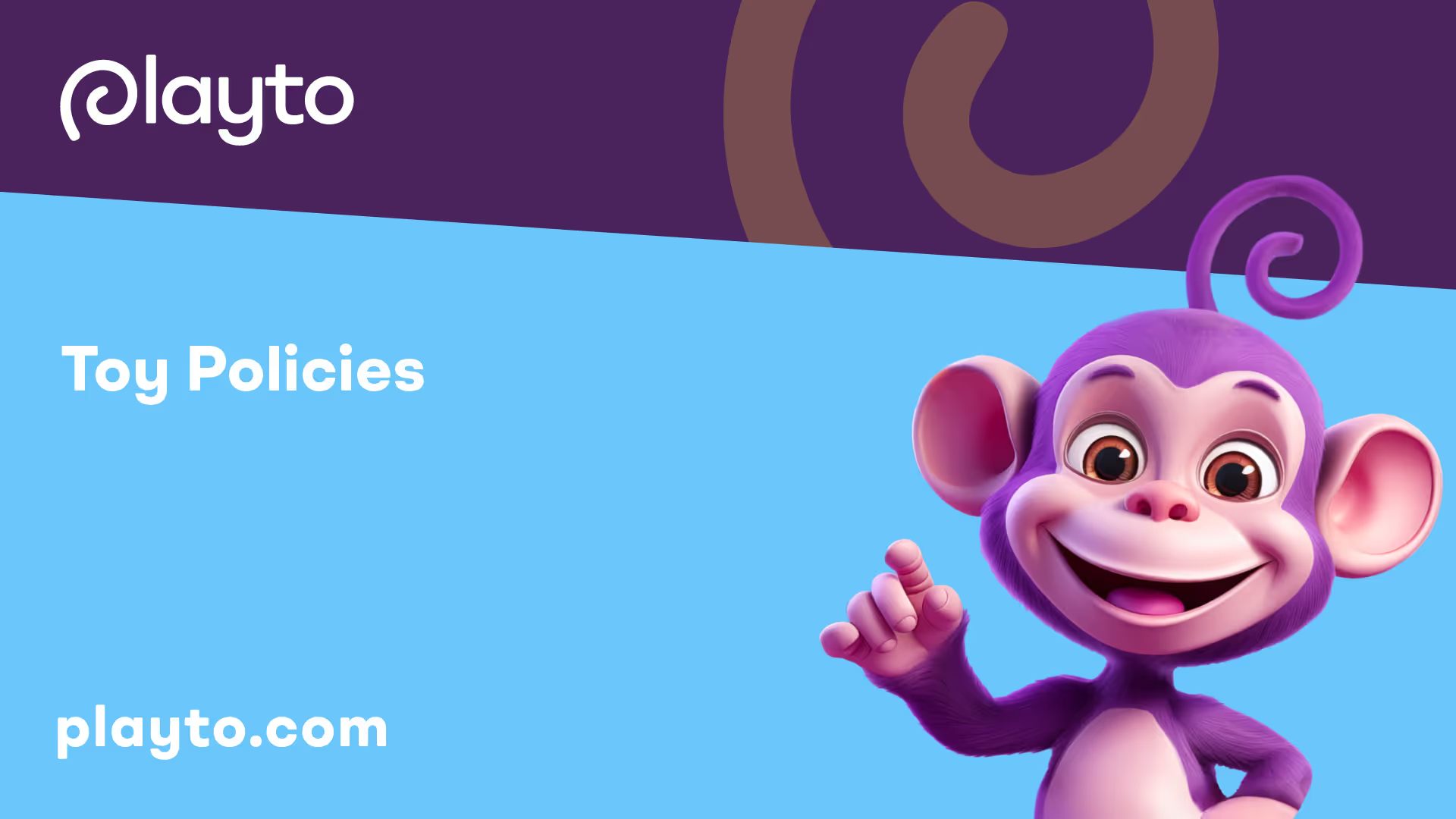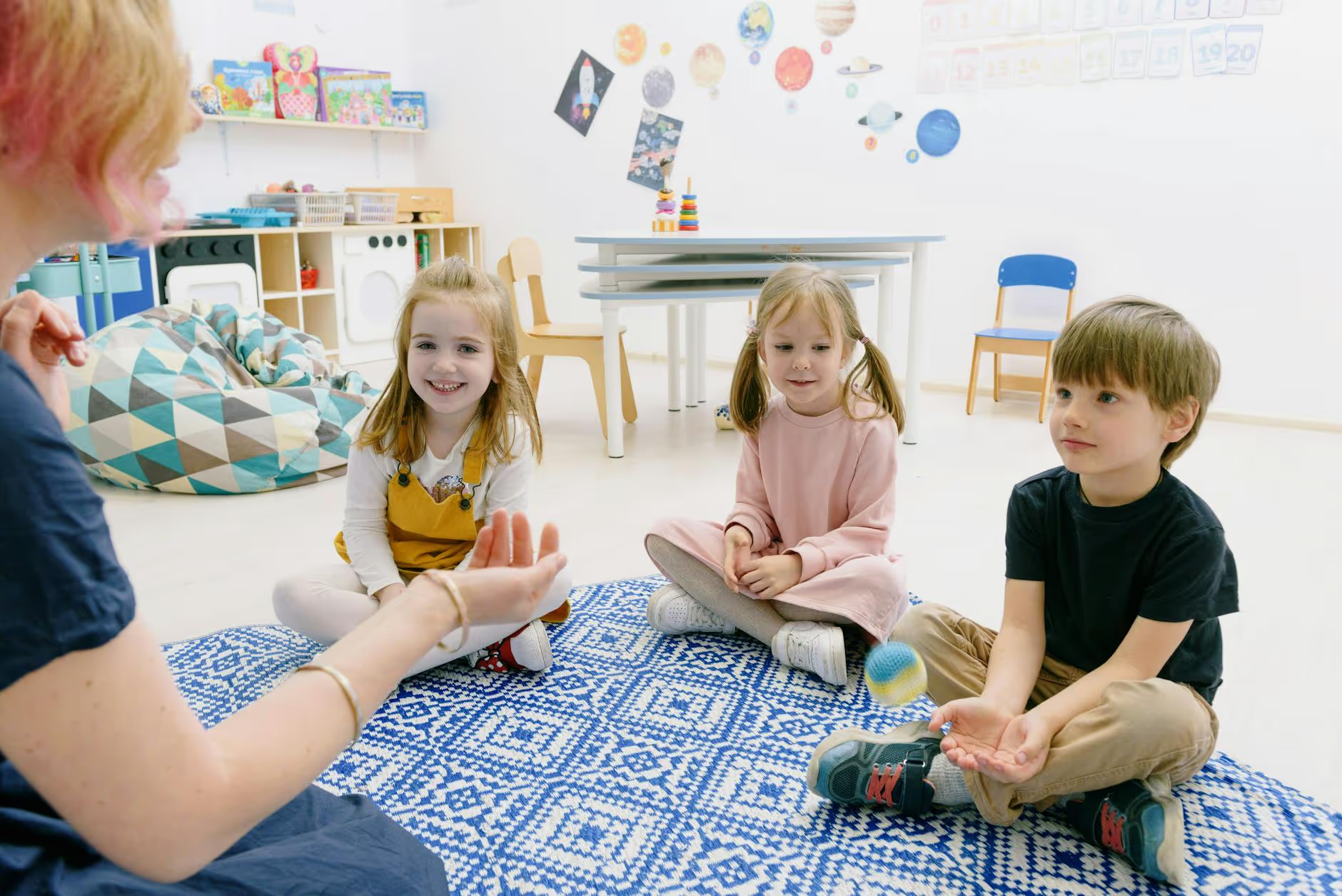Daycare Policies Overview

Understanding Daycare Policies
When choosing a daycare for your child, it's important to familiarize yourself with the daycare's policies to ensure a smooth and safe experience. Daycare policies are designed to provide structure, maintain a healthy environment, and promote the well-being of all children in their care.
Daycare policies encompass a wide range of topics, including daycare illness policies, daycare hygiene practices, daycare policies on screen time, and daycare policies on medication administration, among others. Understanding these policies is essential for both parents and daycare staff to ensure consistent care and adherence to regulations.
By adhering to daycare policies, parents can trust that their child's needs are being met in a safe and nurturing environment. Daycare policies also provide guidelines for staff members, ensuring that they have a clear framework to follow in their day-to-day responsibilities.
It's important to note that daycare policies may vary between different daycare centers and states. Therefore, it is recommended that parents thoroughly review and discuss the policies with daycare providers to ensure alignment with their own preferences and expectations.
Throughout this article, we will explore various daycare policies related to personal belongings, toys, cleaning procedures, and parental involvement. By understanding these policies, parents can make informed decisions about enrolling their child in a daycare center that aligns with their values and priorities.
In the following sections, we will delve into specific policies related to personal belongings and toys, as well as cleaning and sanitizing procedures. We will also discuss how lost or damaged items are handled and the importance of parental involvement in daycare settings.
Personal Belongings Guidelines
When it comes to personal belongings in daycare, there are specific guidelines that parents and guardians need to be aware of. These guidelines ensure the safety and organization of personal items within the daycare environment.

Bringing Personal Items
Daycare policies vary, but generally, children are allowed to bring personal items from home. However, it's important to check with the specific daycare facility for their regulations and restrictions. While it can be comforting for a child to have a familiar item from home, it's advisable to only bring items that are necessary and appropriate for the daycare setting. This may include:
- Comfort items: A special blanket or stuffed animal that can provide comfort during naptime or moments of separation anxiety.
- Extra clothing: It's recommended to have extra clothing on hand, including underwear, socks, and a change of clothes, in case of accidents or spills.
- Specialized items: If a child has specific needs, such as allergy medication or special feeding utensils, it's important to communicate this with the daycare staff and ensure proper protocols are in place.
Remember, it's essential to follow any specific guidelines set by the daycare facility, such as restrictions on certain types of toys or items due to safety or allergy concerns. For more information on daycare policies, refer to our article on daycare policies on personal belongings and toys.
Labeling Belongings
To prevent confusion and ensure that personal items are easily identifiable, labeling belongings is highly recommended. This is particularly important in a daycare setting where multiple children may have similar items. By labeling your child's belongings, you can minimize the chances of items getting lost or misplaced.
When labeling, consider including the following information:
- Child's name: Clearly write your child's full name on each item to ensure easy identification.
- Contact information: It can be helpful to include a phone number or email address as an additional contact point in case an item goes missing.
Labeling can be done using permanent markers, iron-on labels, or stick-on labels. Choose a method that works best for the type of item and ensures the label remains intact even with regular use and cleaning.
By adhering to the personal belongings guidelines set by the daycare facility and labeling your child's items, you can help facilitate a smooth and organized environment for both children and caregivers.
Toy Policies
When it comes to daycare policies regarding toys, there are specific guidelines in place to ensure the safety and well-being of children. This section will cover toy safety guidelines and the importance of sharing toys.

Toy Safety Guidelines
Daycares prioritize the safety of children and have established toy safety guidelines to minimize potential hazards and risks. These guidelines are based on recommendations from reputable organizations such as the American Academy of Pediatrics, HealthyChildren.org, and the Consumer Product Safety Commission.
To ensure toy safety, daycare policies typically include the following guidelines:
- Age-appropriate toys: Toys should be suitable for the age and developmental stage of the children in the daycare. This helps prevent choking hazards and ensures that toys are engaging and educational.
- Regular inspections: Daycare staff regularly inspect toys for any potential hazards such as broken parts, sharp edges, or loose pieces. Damaged toys are removed or repaired promptly to maintain a safe environment.
- Non-toxic materials: Toys should be made from non-toxic materials and should meet safety standards set by regulatory bodies. This helps prevent exposure to harmful substances and allergens.
- Size considerations: Toys with small parts that can pose a choking hazard should be avoided for younger children. It is essential to provide toys that are appropriate for the age group in each daycare setting.
By adhering to these toy safety guidelines, daycares prioritize the well-being and safety of children while promoting an environment that encourages learning and play.
Sharing Toys
Sharing toys is an important aspect of daycare policies as it fosters social interaction, cooperation, and empathy among children. Daycare providers understand the benefits of teaching children to share and have established policies to encourage this behavior.
Sharing toys helps children develop important social skills and learn to take turns, negotiate, and share resources. It promotes cooperation and empathy, allowing children to understand the feelings and perspectives of others. By sharing toys, children also learn valuable lessons about patience, compromise, and respect for others' belongings.
Daycare providers often implement strategies to encourage sharing, such as:
- Structured playtime: Daycares may organize structured play activities that involve sharing toys. This allows children to practice sharing in a supervised and supportive environment.
- Positive reinforcement: Praise and positive reinforcement are used to acknowledge and encourage children when they demonstrate sharing behavior. This helps reinforce the importance of sharing and motivates children to continue practicing this skill.
- Modeling behavior: Daycare staff and educators serve as role models by demonstrating sharing behaviors and emphasizing the positive outcomes of sharing. Children are more likely to emulate these behaviors when they see them being modeled by trusted adults.
By promoting sharing within the daycare setting, children gain valuable social skills that will benefit them throughout their lives.
Understanding and following toy safety guidelines and encouraging sharing are essential components of daycare policies. These policies ensure a safe and nurturing environment where children can learn, grow, and interact with their peers. For more information on daycare policies, you may also be interested in our articles on daycare illness policies: when to keep your child home, daycare hygiene practices and policies, daycare policies on screen time, and daycare policies on medication administration.
Cleaning and Sanitizing Procedures
Maintaining a clean and hygienic environment is of utmost importance in daycare settings. Daycare facilities adhere to specific cleaning and sanitizing procedures to ensure the safety and well-being of children. This includes implementing toy cleaning protocols and personal belonging disinfection measures.
Toy Cleaning Protocols
Toys in daycare centers are subject to regular cleaning protocols to minimize the risk of germs and infections. These protocols are designed to maintain a clean and safe play environment for children. The specific cleaning methods and frequency may vary depending on the facility's policies and regulations.
According to a study published in the Journal of Childcare Hygiene, effective toy cleaning methods for daycare centers involve a combination of cleaning and disinfecting processes (Smith, 2019). The cleaning process removes visible dirt and debris from toys, while the disinfection process eliminates harmful bacteria and viruses.
Here are some common toy cleaning protocols followed in daycare centers:
- Cleaning: Toys are cleaned using warm water and mild detergent. This helps remove dirt, grime, and any visible contaminants from the surface of the toys.
- Disinfection: After cleaning, toys are disinfected using an appropriate disinfectant solution. The solution should be approved for use in daycare settings and effective against a wide range of germs and viruses.
- Drying: Toys should be thoroughly dried after cleaning and disinfection. Proper drying helps prevent the growth of mold and bacteria on the toys.
Daycare centers often have specific guidelines and schedules for toy cleaning. It is important for caregivers and staff to follow these protocols diligently to maintain a clean and safe environment for children.
Personal Belonging Disinfection
In addition to toy cleaning, daycare centers also have policies in place for disinfecting personal belongings brought from home. Personal belongings, such as backpacks, lunch boxes, and clothing, can potentially harbor germs and contribute to the spread of illnesses.
A study published in Health and Safety in Childcare highlights the importance of disinfecting personal belongings in daycare settings (Johnson et al., 2020). Disinfection measures aim to reduce the presence of harmful pathogens and maintain a hygienic environment.
Here are some common personal belonging disinfection practices followed in daycare centers:
- Wiping: Non-porous personal belongings, such as lunch boxes and plastic toys, can be wiped down with disinfectant wipes or a cloth soaked in a disinfectant solution.
- Spraying: Soft items, such as backpacks and plush toys, can be sprayed with a disinfectant spray that is safe for use on fabrics. It is important to follow the instructions provided by the manufacturer and allow sufficient drying time.
- Machine-Washing: Clothing and washable fabric items should be laundered using hot water and detergent. This helps remove germs and ensures cleanliness.
Daycare centers may provide specific guidelines on personal belonging disinfection, including the types of disinfectants to use and the recommended frequency of disinfection. It is essential for parents and caregivers to follow these guidelines to maintain a hygienic environment for all children attending the daycare.
By implementing proper toy cleaning protocols and personal belonging disinfection measures, daycare centers prioritize the health and well-being of children in their care. These cleaning and sanitizing procedures help create a safe and hygienic environment where children can learn and play without unnecessary exposure to germs and infections.
Lost or Damaged Items
In any daycare setting, it's not uncommon for personal belongings to occasionally go missing or become damaged. To address these situations, daycare centers have specific policies in place for reporting lost items and handling damaged belongings.
Reporting Lost Items
When a child's personal item goes missing at daycare, it's important for parents to promptly report the loss to the staff. Daycare centers typically have a designated procedure for reporting lost items, which may involve filling out a form or notifying a specific staff member. This helps to ensure that the daycare staff is aware of the situation and can take appropriate action.
Upon receiving a report of a lost item, daycare staff will often conduct a thorough search of the premises to locate the missing item. They may check common areas, cubbies, or any other places where the item might have been misplaced. It's important for parents to provide accurate and detailed descriptions of the lost item to assist in the search process.
To minimize the risk of losing personal belongings, it's advisable for parents to label their child's items with their name. This makes it easier for daycare staff to identify and return lost items to the rightful owner. For more information on labeling belongings, refer to our section on Labeling Belongings.
Handling Damaged Belongings
Accidents can happen, and sometimes personal belongings may become damaged while at daycare. Whether it's a torn book or a broken toy, daycare centers typically have guidelines in place for handling damaged belongings.
When a child's item is found to be damaged, daycare staff will notify the parent or guardian of the situation. Depending on the severity of the damage, the daycare center may offer compensation or a replacement for the item. It's important for parents to communicate with the daycare staff regarding the value and importance of the damaged item to facilitate appropriate resolution.
Daycare centers may also have policies regarding liability for damaged belongings. It's important for parents to review the daycare's policy in this regard and understand their rights and responsibilities. Clear communication between parents and daycare staff is crucial to ensure a fair and satisfactory outcome when handling damaged belongings.
By promptly reporting lost items and following the daycare center's procedures for handling damaged belongings, parents can help facilitate a smooth resolution. Additionally, it's important for parents to review and familiarize themselves with the daycare's policies regarding lost and damaged items to understand the procedures and expectations. This promotes a positive and collaborative relationship between parents and daycare staff, ensuring the best care for children in the daycare setting.
Please note that these policies may vary between daycare centers, so it's important for parents to consult the specific policies and guidelines of their child's daycare center for accurate and detailed information.
Parental Involvement
Parental involvement plays a crucial role in ensuring a positive and successful daycare experience for children. Effective communication between the daycare center and parents is essential in maintaining a collaborative and supportive environment. Additionally, parents have certain responsibilities when it comes to their child's belongings and participation in the daycare program.
Communicating with Parents
Clear and open communication between daycare staff and parents is vital in building trust and ensuring that all parties are well-informed. Daycare centers should establish effective communication channels to keep parents updated on their child's progress, daily activities, and any important information. This can be done through various means such as newsletters, emails, phone calls, or parent-teacher conferences.
Regular communication allows parents to stay involved in their child's daycare experience and encourages active participation in their child's learning and development. Research has shown that parental involvement positively impacts children's education and overall well-being [1]. By fostering a strong partnership between daycare staff and parents, children can receive consistent support and care both at home and in the daycare environment.
Parental Responsibilities
Parents also have certain responsibilities when it comes to their child's participation in the daycare program. These responsibilities may include:
- Providing accurate and up-to-date information: Parents should ensure that all necessary forms, such as emergency contact information, medical records, and consent forms, are completed accurately and updated as needed. This information is crucial for the daycare staff to ensure the safety and well-being of the child.
- Following daycare policies: Parents should familiarize themselves with the daycare's policies and procedures and adhere to them. This includes policies on personal belongings, toy safety, hygiene practices, illness policies, and others. By following these policies, parents contribute to maintaining a safe and organized environment for all children.
- Labeling belongings: Parents should label their child's belongings with their name to minimize the risk of items being lost or misplaced. This can include clothing, bottles, blankets, and other personal items. Proper labeling helps daycare staff identify and return items to the correct child, reducing confusion and potential mix-ups.
- Active involvement in their child's learning: Parents are encouraged to engage in their child's learning and development outside of the daycare setting. This can involve reading to their child, engaging in educational activities, and providing a supportive and enriching home environment. Studies have shown that parental involvement in early childhood education positively impacts children's academic and social outcomes [2].
By actively participating and fulfilling their responsibilities, parents contribute to a positive daycare experience for their child and help create a collaborative partnership between home and the daycare center.
In summary, effective communication between daycare staff and parents, as well as fulfilling parental responsibilities, are essential components of parental involvement in a daycare setting. By working together, parents and daycare centers can create a supportive and nurturing environment that promotes the well-being and development of each child.
